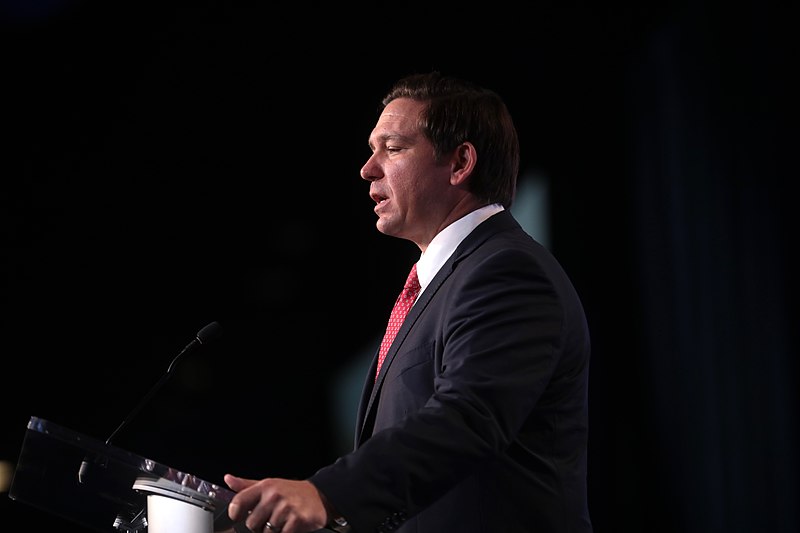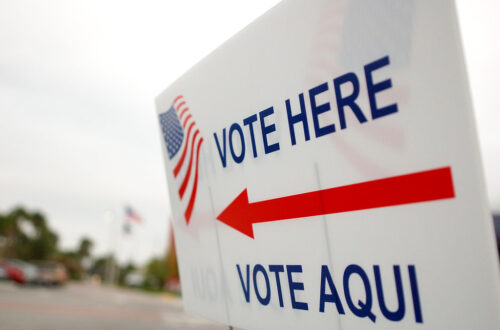Jobless Floridians will have to start looking for work by the end of May to continue receiving unemployment assistance, as Gov. Ron DeSantis, R-Florida, and Dane Eagle, secretary of the Department of Economic Opportunity, have announced the state will restore the unemployment work search requirement.
“There’s not a single part of Florida that I go to where I don’t hear the exact same concern about, ‘We have openings, we need people to fill them,’” the governor said at a press conference in Tarpon Springs on May 12. “So I think that looking for work is important. I think it’s something that needs to be done.”
Florida statute 443.091 requires individuals receiving unemployment assistance to contact five prospective employers each week while receiving benefits in order to prove they are “able” and “available for work.” That requirement was waived by executive order throughout the COVID-19 pandemic.
However, recent job reports have been underwhelming as the state and national economy reopens and looks to rebound from a difficult year. Employers have had trouble filling open positions, especially in the service sector, which is the backbone of Florida’s economy.
State Sen. Jason Brodeur, R-Sanford, told the Florida Political Review that the decision to restore the work search requirement was a necessary one. Brodeur, who also serves as the president and CEO of the Seminole County Chamber of Commerce, says the work search requirement is needed to help businesses find new employees.
“We’ve gotten to the point where federal benefits layered on top of state benefits are replacing people’s desire to go out and get a job, which is hurting our economy,” Brodeur said.
While the White House itself has been urging states to restore their work search requirements, it has also defended its support for increased federal unemployment benefits. Many in the Republican Party and the business community, meanwhile, blame boosted benefits for widespread hesitation to return to work.
Consequently, several states have begun withdrawing from the Federal Pandemic Unemployment Compensation program. On May 24, Eagle and the DEO announced Florida will withhold federal benefits as well.
Prior to Eagle’s announcement, Brodeur also said he’d support doing so.
“All you need to do is find all the fast food restaurants that can’t open their dining rooms because they don’t have enough people showing up for work,” he said. “In our lifetimes, that’s never happened.”
Democrats and workers’ advocates have expressed different concerns. They have argued the problem is not the attractiveness of unemployment but the unattractiveness of jobs available that keep the unemployed from returning to the kinds of jobs they held pre-pandemic.
State Rep. Anna Eskamani, D-Orlando, a prominent advocate for the state’s unemployed, has publicly attributed a lack of applicants to low wages and poor benefits, especially in a pandemic-ridden economy.
“At this time we’ve accepted that the work search requirement will be put back into place at the end of May and have focused our efforts on helping Floridians prepare for it,” Eskamani told the Florida Political Review.
“My preference is that work search requirements are suspended in any state of emergency,” she added. “Remember that folks could also find themselves on unemployment after the impact of a hurricane as well.”
In a statement shared on social media May 24, Eskamani called the decision to withhold FPUC payments “shameful.” She noted in a different post that Florida already has some of the lowest weekly benefits in the country, and she criticized the governor for his opposition to changing it, a position she’s voiced throughout the pandemic.
On April 22, the Florida Senate unanimously passed SB 1906, which would have raised maximum weekly unemployment benefits from $275 to $375 and reduced the work search requirement from five prospective employers per week to two or three, depending on the county. The bipartisan bill was led by Brodeur, but it failed in the House due to opposition from DeSantis and the Republican caucus.
However, Brodeur himself expressed now that SB 1906’s measures were in response to a different economic situation than what the state faces now.
“Unemployment is an insurance program,” Brodeur said. “When jobs are available, it’s a lot less necessary than when there’s nothing available because of a once-in-a-hundred-years global pandemic. As that issue is beginning to resolve itself, we need to get back to normal.”
He explained that the state now needs better information before it considers changes to the system.
“The principle behind introducing [SB 1906] was that we look at the benefits for the first time in 20 years. If we had better information that said we are out of line with other states, or that we’re disproportionately hurting folks, maybe it’s time to modernize,” Brodeur added.
Eskamani, meanwhile, says that Florida’s benefits are clearly much lower than other states, a fact that is especially notable considering the state’s cost of living and the amount of time benefits are available. In March 2021, Forbes Advisor ranked Florida 51st out of the states and Washington, D.C., for unemployment benefits.
She had proposed an amendment in the House to raise weekly benefits by $100, which failed along party lines just as SB 1906 did in that chamber.
“There is always hope, but the oppositional behavior from the Republican Party in the Florida House is strong,” Eskamani said. “They think Florida’s unemployed are lazy, and they continue to ignore the fact that Florida has one of the lowest weekly benefit amounts in the country.”
Check out other recent articles from Florida Political Review here.
Featured Image: Ron DeSantis speaking at a conservative political convention in 2018. Unmodified photo by Gage Skidmore used under a Creative Commons license. (https://bit.ly/3bNOdjU)





